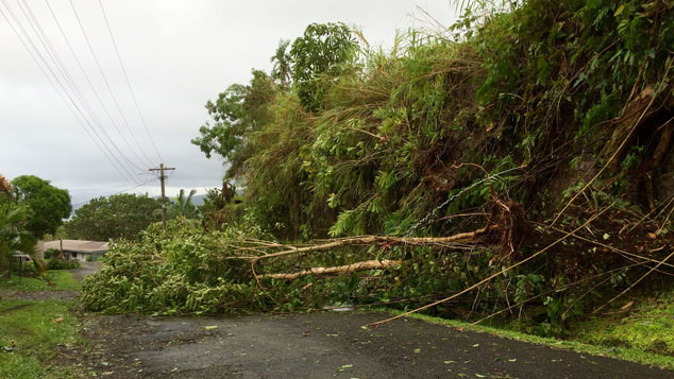
UPDATED 4:50pm: Aid agencies are desperately trying to help children after more than 60 schools were completed wiped out by Cyclone Winston.
The death toll from the cyclone has reached 42 and at least 14-thousand people have been displaced.
Save the Children spokeswoman Jessica Kay is in Suva and said one teacher walked into their office begging for books because every single one of them had been destroyed.
She said their priority at the moment is setting up child friendly spaces.
Meanwhile the Crusaders are joining efforts to help those recovering in the wake of Cyclone Winston.
The team has a number of Fijian players in its ranks.
Assistant Coach Tabai Matson said wing Nemani Nadolo is leading the charge on fundraising efforts.
He said the team wants to bring awareness to the tragedy.
"This touches the Crusaders you know it's a first contact for us, we've got guys in their homes, their actual homes in Fiji. So it's a pretty poignant fundraiser they're doing so we're right behind them and we're going to look at creating as much energy [as possible] this week and next week."
Tabai Matson said the team will auction some rugby jerseys to be worn in their first Super Rugby game of the season on Saturday.
MORE: "Every house damaged or flattened"
There are now fears stagnant floodwaters in Fiji could become breeding grounds for Zika and Dengue outbreaks following Cyclone Winston.
At least 42 people are dead, 14,000 are displaced and entire villages have been destroyed after the cyclone struck the country's north on Saturday.
Floodwaters still haven't receded in many low-lying and coastal areas, like the village of Rakiraki in northern Viti Levu.
Disaster Recovery Institute director executive Chloe Demrovsky said even the smallest puddle could be a breeding ground for mosquitoes carrying viruses.
"When a cyclone comes through, there tend to be a lot of places where there are puddles. It can breed in standing water as small as a tablespoon," she said.
"Things can be done are, around a house, around a shelter, go around and drain any standing water pools to prevent the spread of these mosquitoes."
Thousands of people are living in evacuation centres, while many others are staying in makeshift shelters or damaged homes.
Chloe Demrovsky said inadequate housing and clothing can make people particularly vulnerable to any outbreak of mosquito-borne viruses.
"There need to be screens in place, they need to stay indoors. If screens have been damaged they should be fixed," she said.
"You need proper clothing to protect you from mosquitoes, long, loose clothing, light in colour, and obviously you need to have insect repellant as well.
New Zealand Herald reporter Anna Leask has been talking with locals in northern parts of the main island of Viti Levu.
She said life in Nadi is getting back to normal, but northern parts of the island have been devastated and Rakiraki has been severely affected.
"As you go north, there is just more and more devastation, more trees down, and the floodwater is only just receding in some places."
Leask said rain is adding the floodwaters, and making life harder for people who are trying to salvage and dry their belongings after the storm.
"We're in the tropics and soon as it rains everything gets wet again, so it's quite a struggle for them but they are trying to salvage as much as they can."
In badly damaged northern villages, people are finding shelter wherever they can, like "under a pretty gnarled and twisted corrugated iron roof, hanging precariously over the edge of their house."
Take your Radio, Podcasts and Music with you









